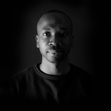Kern Carter's Blog, page 22
October 31, 2022
Good writers don’t say bad words
 Artwork by author (Agnes)
Artwork by author (Agnes)I read somewhere that good writers don’t need bad words, and it got me thinking.
I grew up with few to no bad words. It just wasn’t something we heard at home. My dad, very occasionally, might say one when he drove; when somebody aggressively cut in front of him on the road or slammed the brakes for no visible reason. That was all. And if we heard one as kids do and brought it home, it was quickly shown the door.
We moved abroad when I was around ten. We spoke Spanish at home and English everywhere else. I remember one day on the school bus; this girl from my class said a bad word. I obviously didn’t know it (I didn’t know the equivalent in Spanish, much less in my second language) and when I asked what it meant, she proceeded to mock me. Never explaining what it was but showering me with a lot of other bad words and laughing that I didn’t know any of them. I took home a bunch of them like a bucket of strangely shaped objects to hide under the bed.
I didn’t know what they meant, but I didn’t need to know the definition to understand that they were bad words. There was a seemingly inherent sentiment to them. There was something about the way they were said, the micro-expressions of the people who heard them, the tone or the inflection, or the combination of all those things.
Something told me: this is a bad word.
As I started learning English, and English bad words, I tried them on and got told off at home, and at school. At the time, I had some English as a second language classes with a teacher who was quite a character. She suggested that we substitute the bad words. She could understand the sentiment but could not condone the language. Shit became sugar, fuck became fudge (which I’d later change to firetruck: big, red, loud, it felt like a closer approximation).
It kind of goes to show how arbitrary “bad words” are. In Argentina, there’s a word that started out as a bad word and is now mostly used as “dude”, unless the inflection (and volume) indicate otherwise.
Anything can be a bad word, we’re the ones that make it so. That said, I do sometimes say the actual words.
Eventually, a few bad words made their way into my vocabulary. I don’t use them a lot and when I hang out with people who do say a lot of bad words, I still get that wide-eyed, eyebrows-up, childish “oh” look on my face. When a person swears a lot, it takes me a minute to get past the bad words and hear what the person is saying, like looking for Waldo in a mess of colors.
Bad words can be aggressive like they were that day on the bus, but they can also be freeing. I don’t know if “freeing” is the right word (I guess “good” words can be wrong too). What I mean to say is, sometimes, when something goes wrong, saying the one that starts with f and ends with ck doesn’t feel wrong. Bad words can feel pretty good.
There seem to be different levels of swearing and different degrees of creativity across cultures, too. I read an essay on the subject by David Sedaris in Calypso a few years ago. I think he concluded that Romania took the gold on swearing creativity. Bad words there aren’t simply swear-words, but rather very descriptive, very expressive phrases.
Creative and convoluted or short and straightforward, it seems we all use them. They play their part as all the other words do. And if we use them when we talk to each other, I guess it makes sense that they find their way into our writing too.
[image error]Good writers don’t say bad words was originally published in CRY Magazine on Medium, where people are continuing the conversation by highlighting and responding to this story.
October 26, 2022
I’ll keep my gooey little heart
A little sense, and a lot of sensitivity
 Art by author (Agnes)
Art by author (Agnes)You hurt my feelings and it caught me by surprise. I can’t tell if you cared too little or I cared too much, but I fell in the gap.
When I was seven years old, a school teacher told me I was too sensitive. She said I had to toughen up. I can’t remember what I was upset about, but I remember her less-than-consoling words. Like a kick when you’re down. I didn’t tell anyone.
Being “sensitive” was labeled as bad. I didn’t understand it any more than I controlled it back then. I just understood it was something to hide. There’s a line in a favorite movie of mine where one, very cynical character, turns to the main character (a hopeless romantic type) and she says “Put some armor around that gooey little heart.” Whenever I see it, I think of my primary school teacher.
Beloved characters aside, whether we want it to or not, some armor does go up. Every experience we have takes a stand between us and what comes next. The good, the bad, and the in between accumulate like languages we learned, but don’t practice. They take up residence at the back of our minds, only to pop back into our consciousness when something looks like them. Call it armor, call it thick skin, call it stained glass.
I think my shield is more of the stained glass variety. Grains of sand that accumulated and solidified, and got colored, over time. Maybe it doesn’t offer much in the way of defense, but it’s still there to reflect and refract, to filter and bear the brunt of the scratch. If I believed “sensitive” was bad, I might look for a trade up.
The thing about my thin walls is that they color how I see, but also what I put out. This wall that isn’t a wall, this unprotected, gooey little heart, is a big part of why I write, what I write, how I write.
“Every child is an artist. The problem is how to remain an artist once he grows up”. Pablo Picasso
My hypothesis? I think “the problem” is, at least in part, our relationship to emotions. Sure, imagination is also a part of it. We think “artist” and we think “creative”. Children can be far more imaginative than adults because the limits between fantasy and reality are not so clear-cut when you start out. But in “artist” there is also “expression” and in “expression” there are gooey little hearts that feel the feelings and look for words and colors and sounds to convey them.
You hurt my feelings and it caught me by surprise. I had my colored glasses up, but your indifference was sharp enough to make a crack. I can’t tell if you cared too little or I cared too much, but I won’t take it back.
So I’m a little banged up and you are unscathed. I’ll take the experience and turn it into art. The muse gets fuel from the burns, she loves my losses and my longings, not with cruelty but with wonder: another thing we survived, another mess to make sense of.
I’ll keep my gooey little heart.
[image error]I’ll keep my gooey little heart was originally published in CRY Magazine on Medium, where people are continuing the conversation by highlighting and responding to this story.
October 25, 2022
What Does Home Mean to me?

The architecture of our house is straightforward, but the makings which create our home are anything but ordinary. Our home is so much more than rooms and windows held together by boards and beams. It’s the stories and memories, and the hopes and dreams.
It’s the clattering feet of my children on the hardwood. It’s the round table that we gather around every night. It’s the beds that we rest our heads on at night, and the sofa we snuggle up on. It is built on the laughs, cries, hugs, and love that are created within those walls. It’s the time we spend together and the wish that it would last forever, but knowing we are living on borrowed time.
Our home is where we make a living, as well as where we make a life. My husband and I are building brands and forming foundations. We’re creating a financial future for our family. We’re igniting our potential in the in-betweens of our day. We’re working hard for our family, while the kids are at school, all the while missing them, anticipating the moment they come running off the bus.
Exchanging loving eyes between my husband and me as we brush shoulders in the kitchen during the breaks we take from our work. We catch admiring glances from each other that are filled with appreciation and love. A love we share that’s rooted in the journey we’ve taken together. The years we knew before them, during them, and what we have to look forward to after they’ve grown.
I know that the fancier house doesn’t make for a more functional family. I know that the remodeled kitchen isn’t what’s most important. It’s not the new windows that make me see clearer. It’s the foundation we built that forged a home within us that lives well beyond these walls.
The brand of couch or type of marble doesn’t make me marvel at what I have. It’s the safety my children feel knowing they are home wherever we are together. Beyond these walls, within our family. It’s the freedom to show up however they want, and as whomever they want, because they are safe, and they are home.
As much as I cherish these times, I know they are passing. One day my home will not be filled with fluttering footsteps and busybodies. It will be haunted by the memories of what we once had, and how fast they grew. I will be left with mere memories of the daily snuggles and the kisses goodnight. But I can look forward to that home we built, calling them back whenever they want to feel our love.
The round table that we gathered around for dinner each night will hopefully be filled with the spouses and my babies' babies. The fireplace that kept us warm will have a few more stockings surrounding it. The warmth of our love will be enough because it was always enough.
We may live within our house, but we’ve created a home. A home that exists outside of these walls. An abode that will last the test of time, because our time has been spent together. The memories we made in this house are ours forever, and we will cherish them long after this house is no longer our home.
[image error]What Does Home Mean to me? was originally published in CRY Magazine on Medium, where people are continuing the conversation by highlighting and responding to this story.
Home is
 A simple and cozy cabin in the country
A simple and cozy cabin in the countryTo me home is
Not just a place I go to lay my head at night
It’s a feeling that’s warm, welcoming, and cozy
A sense of safety, kinship, and love
But a home is so much more than this
Sometimes it can be cold, somber, and bleak
Dark, puzzling, and strategic
Like the pieces of home just don’t quite fit
Some parts break and bend due to outside forces
And I feel lost and confused trying to solve my home again
It’s in those moments when I take time to reflect
To see things from a new angle, to adjust my point of view
Home gives me space to breathe, to start over
To properly set things right once more
Home has once again become a feeling of love and laughter
Of comfort, security, and where my family can rest
After a long day of facing a vicious world
To me, home is a feeling of belonging
No matter what or who tries to bring it down
[image error]Home is was originally published in CRY Magazine on Medium, where people are continuing the conversation by highlighting and responding to this story.
Visit to Manhattan

She pointed out a marble statue of two men holding hands in a tiny parkette.
I saw only the ragged woman beneath it asleep, her head in her lovers’ lap
– silent, screaming alarms, the most-poor,
circled by shiny black rails and manicured shrubs.
I walk the streets and am stopped again and again by city dwellers,
who ask me for directions.
I wrote this in the notebook that I always carry in case of sudden-need-to- write-a-poem, for which I would need paper and a pen.
I was in Manhattan for a music conference and staying downtown with my childhood friend from school in Trinidad and her American husband. It was my first visit to the city and they walked me around pointing out landmarks, as I kept an eye out for vegetarian restaurants. They took me to the famous Blue Note Jazz Club, where I experienced the one set wonder of music clubs in New York. Spinning lightly between closely packed tables, a whirlwind of serious wait staff took orders and raced to land food and drinks on the table before us. I realized that we were not there to lounge over a bite and a couple of drinks for the evening as was customary in Toronto. Our job was to sit down, order fast, eat quickly, drink up and leave at the end of the set, as the next round of listeners was already lined up outdoors, ready to take our places. I don’t even remember who played.
I’d been slotted to perform in a small club in Alphabet City. Canadian bass player Steve Lucas had made the trip with me and arranged for two New York musicians to join us and complete the quartet. We did one rehearsal in the guitarist’s Brooklyn home. The gig was fun. The conference was uneventful. My hosts both had day jobs and needed to be up early, so on other nights, I’d wander around by myself, weirdly at ease on the late night streets. There were line ups at many of the conference venues, so I took myself to a nearby comedy club, a blues bar, a vegetarian restaurant.
This was in the early 1990’s. I recall that in that city, a certain tension drained from my body. I felt a weight of a kind of hypervisibility that I carried in Toronto, Canada — a Black woman with dreads and a guitar slug over my back — disappear. I had not felt this way since childhood in the Caribbean, a place where my looks and presence were ordinary.
After four days, I took the train back home. I’d bought two things on my trip. Tucked into my knapsack was an orange hat from a boutique close to Washington Square. I’d also bought a black t-shirt. On the back of it are rows and rows of tiny raised white letters. About one third of the way down in letters about 5 millimeters high, my own name was nestled amongst those of the 200 others conference musicians. I remember that I also carried a lightness within me, a momentary feeling of ease and invisibility, garnered over four days, on the anonymous streets of Manhattan, New York.
[image error]Visit to Manhattan was originally published in CRY Magazine on Medium, where people are continuing the conversation by highlighting and responding to this story.
October 24, 2022
Four Brothers With 7 Days to Live
 “Prym, Puck, Paco, and Pepi scattered to the four points of the compass, each taking a different path forward.“ [artwork by the author]
“Prym, Puck, Paco, and Pepi scattered to the four points of the compass, each taking a different path forward.“ [artwork by the author]One evening four brothers — Prym, Puck, Paco, and Pepi — came together to grieve the passing of their father. After a while, the conversation tilted towards their own mortality, and they began to explore their end of life wishes.
Prym pondered the uncertainty of it all, “How much time do any of us have?”
Puck blurted, “Yikes! I have ninety-nine things yet to see and do, and my list keeps growing.”
Paco philosophically interjected, “Wait! Shouldn’t life be less about experiencing things, and more about making a difference . . . creating a lasting legacy?”
Pepi remained silent for a while before cryptically whispering, “Seeing, doing, creating — does it really matter in the bigger picture? Don’t the poets all agree that love is the answer? And as for the uncertainty of it all . . . would you act any differently if the exact date of your death were foretold?”
The conversation continued in this way with each brother’s stance becoming ever more engraved in their minds: Prym lamenting the randomness of it all; Puck wrestling with the importance of experience; Paco insisting creativity is the highest calling; and Pepi quietly affirming his idea that relationships are what really matter.
A short time later, a Messenger suddenly appeared before them announcing, “I am the Messenger of Fate. I have been sent to inform you that your worldly days are numbered. You have seven days to live. Put your affairs in order and prepare yourself.”
The brothers were surprised by this apparition, and alarmed at what they had just been told. Are we imagining this? Do we really have just seven days? Did he mean one of us, or all of us? Before they could get answers to their questions, the Messenger disappeared.
“Could it be true?” Prym asked. “Did we bring this upon ourselves, becrying the randomness of life’s final moment, asking for certainty about life’s greatest secret, when such certainty can never be revealed?”
In their trepidation, the brothers whirled through the possibilities. Perhaps the message was to be delivered to just one of us. But if so, then who? Or perhaps some imminent catastrophe is awaiting all humanity. Or maybe some fatal accident will befall the four of us together.
Prym was quick to state the obvious solution. “We must distance ourselves, lest any accident should overcome the group of us. Let us each save ourselves.” Reluctantly the four brothers said their farewells, with almost certain knowledge that when they next met, one of them would no longer be alive. They scattered to the four points of the compass, each taking a different path forward. Here are their stories.
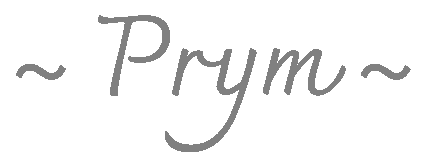
Prym awoke early Monday morning, and immediately began scribbling notes to himself. “I must get to the bottom of this,” he declared, and thus set in motion a plan for the next seven days.
First he went to his doctor and got a thorough checkup, insisting to the physician that every possibility be investigated, every technology employed, every sample be analyzed. And so he spent Monday getting jabbed with needles.
He learned nothing from all the poking around, so on Tuesday he went further, arranging to have specialists with their high-tech gadgetry scan every organ and bone in his body. He was injected with illuminating dyes and subjected to noisy machines that clicked and buzzed. But those readings too came back negative. Then he insisted that he be examined from the inside out, from top down and from bottom up. He subjected himself to those dreaded tubes that modern medicine uses for such purposes. Once again, everything checked out. There were no signs that anything was wrong with him.
On Wednesday, satisfied that he was not going to die from some undiscovered illness, his concern shifted to mental health. Was he going crazy? He had to know if this was all just his imagination. So he underwent a lengthy therapy session, dredging up all his doubts about life and death, wrestling with his anxieties. But the therapist could do nothing to relieve his tormented mind.
On Thursday, he turned to the clergy, reasoning that they would be better suited to provide insights into his life and death dilemma. But his consultations with priests and rabbis and imams only left him exasperated. “No one can know the will of God,” they said, “you may enter the kingdom of heaven as foretold by the Messenger, or you may be granted a reprieve. In these matters, there are no certainties.”
When Friday dawned, Prym was no closer to understanding why his fate was sealed, or even if it was. Prym’s life had always been defined by punctuality, planning ahead, his need for control, knowing things with certitude. But no one could point towards anything that could explain the Messenger’s pronouncement. In his frustration, Prym shouted to everyone and no one in particular, “Why now? Why me? Why have I been burdened with this knowledge?” But there was no answer. No mortal being could provide clues, and the Messenger himself was busy elsewhere.
Saturday arrived with impending clouds hanging low. He had led an exemplary life, meticulous and fastidious at every angle. It was unfair. He had exhausted every avenue of inquiry — physical, mental, spiritual. The only remaining route he could see was legal. Furious at the perceived injustice, Prym penned a letter to his lawyer outlining instructions to be followed should his death occur as foretold. A complaint must be lodged with the authorities! An autopsy must be performed, and the medical profession must be called to account! The clergy must be chastised for their insensitivity in his time of need! Someone must take responsibility. Finally, the sixth day came to a close.

Puck couldn’t be more different from his older brother: he welcomed the dawn of his final week. There was no bargaining, no anger, no attempt at denial. He accepted the decision of the Fates as final. “C’est la vie,” was his motto, “I’ve lived a full life and have no regrets.” Puck decided to see and do as many things as possible within his allotted time.
On Monday he set about visiting all the nearby sites that he had somehow never found the time for: renowned parks & gardens, great architecture, museums of all types. He rushed through one after the other, ticking boxes on his list as the day progressed.
Tuesday was for aviation thrills: aloft in a hot-air balloon, as a passenger in an aerobatic barnstormer, pulling 10 G’s aboard a retired fighter combat jet.
Wednesday was for indulging his appetite: he breakfasted on eggs, bacon, biscuits and gravy; he lunched at an open buffet, tasting sample after sample of cured meats, breads, pastas and sauces; he roamed the marketplace indulging in deep fried street food; he dined on wild game, exotic fruits, chocolate and fresh cream.
When Thursday arrived Puck’s week of thrills collapsed around him, he had done too much, respite was required, his body needed cleansing. Reluctantly, he allowed his body to repair itself from the prior days’ excess through the welcome touch of a professional masseuse.
But he was soon back at his go-go-go pace. He decided that Friday was to be given over to the pleasures of the flesh. He spent the day with a fistful of small bills drinking beer and watching a parade of pole dancers perform their routines in dishabille. Hours passed, inebriated beyond comprehension, his libido aroused by the show’s all-talent finale, he tossed the remainder of his wad towards the on-stage performers signaling his lustful intent — his sexual fantasies were fulfilled. Hours later he disentangled himself from the orgy, his body tingling, his mind swirling, another boxed ticked.
On Saturday Puck went even further beyond reason. He walked into a sports car showroom, and within minutes was behind the wheel of the fastest car on the lot. “Restraint is for losers,” he laughed to himself, knowing full well that he couldn’t responsibly afford such power and luxury. He growled the engine and screamed the tires, pushing himself and the car beyond the boundaries of safety. He felt the rush of adrenaline coursing through his veins, the heightened sensation of life on the edge — today was not his day to die. He was invincible.
Puck had followed a pattern of thrills and excess and reckless abandon all week, until finally the sixth day came to a close.

Paco chose a different path from his older brothers. There was no space in his remaining days for questions or logic or anger; this was not the time for thrills and bodily pleasures. Instead he followed his life’s passion for art, and chose to work on one final creation — a masterpiece with a message, one he had been planning for a long time, but had never made the time to begin.
His project would be a painting inspired by recent advances in astronomy. He would paint the night sky on a grand scale, with a myriad of stars and galaxies and clusters, our Blue Marble enveloped by the dazzling light of the Universe arriving from the eons. It would be his vision of our place in the vastness of it all, with a nod to Vincent van Gogh’s Starry Night and Michelangelo’s Creation of Adam.
Paco had already drawn a set of studies for his idea, and knew deep down what he was aiming for. To do it as he envisioned, a canvas no matter how large, wouldn’t suffice. Instead, he would paint a mural, on a large slab of concrete, located near the city’s center.
He sketched the outline of his forthcoming creation onto the concrete in sweeping gestures. He touched spots here and there with color samples, changing and adapting the range of hues until satisfied with the direction of things. He annotated the sketch with notes to himself: Earth goes here, the Milky Way in this broad swath, the light from a thousand distant galaxies there and there and there.
Satisfied with how things had developed with his first day of work, he rested. In his sleep he dreamed of a greater beauty, one that captured more than Creation itself, one that brought forth the glory of space and time and Man’s place within it.
On the second day, Paco showed his sketch to the mayor, described how the finished piece would enhance the image of the town, and thus secured permission to proceed with his idea. Next he arranged for large quantities of paint and supplies to be delivered to the mural’s site. Then he spoke to a classroom of art students and persuaded them to join the upcoming effort.
Wednesday arrived and everyone got busy. Paco directed the effort. Scaffolds were erected, ladders were secured, large buckets of paint were lifted high off the ground. Chatty students wielding brushes and rollers followed Paco’s instructions to stroke and fill and feather and mix different colors as the mural’s background took shape.
On Thursday he patterned the multitude of galaxies, spacing them in clusters, tinting them red and blue, some more forcefully, others more subtly, as he expressed the expanding nature of their being and the unfathomable distance from there to here.
On Friday the broad swath of the Milky Way was brought forward, emphasizing the vastness of the space between galaxies. Finally, Earth itself was dropped onto the canvas, minuscule in size compared to the wholeness of its surroundings, off center, made prominent through artful luminance, a precious pearl cradled by invisible hands.
Saturday arrived, Paco stood back and gazed at his work. He was ambivalent — pleased with the broad strokes, yet troubled by the minor imperfections. Sadly, Paco had never accepted the idea that there is beauty in imperfection, wabi-sabi was a foreign concept. He couldn’t stop. He reworked the distant galaxies, and fussed over Earth’s singular presence, as he vainly sought the missing sense of gravitas. Finally, the sixth day came to a close.

Pepi awoke Monday morning reflecting on the Messenger’s news from the evening before. It was indeed a startling revelation. Nevertheless, instead of rushing into action like his brothers, he chose to face the day in quiet solitude.
He roamed his gardens pensively wondering what to do, hoping that the beauty and melodies of nature would clear his mind. But his attempt at meditation was interrupted by the beckoning call of the garden itself wanting attention — planting, weeding, watering, trimming — there was so much to do, and so little time to do it. So he just sat and listened to the birds, hoping that nature’s sounds would bring calm. Unfortunately, two jays began harassing a hawk, which was sitting atop the tallest tree (just minding its own business), and the harried raptor abandoned its post, screeching its displeasure, as the jays proclaimed their victory. Alas, bird-watching was also not going to help him think clearly.
Finally, Pepi went for a long walk along well worn paths to allow his mind to relax. The rhythm of his movements, the familiar route, the slowly changing scenery, and the fresh air coursing through his body released his fears. He was no closer to a plan of action when he eventually returned home, yet somehow he felt better prepared to face his final days. He was ready to accept the inevitability of his fate. And thus, in that moment of clarity, he resolved to receive the coming days as a gift from above, one last chance to truly live in the present moment.
On Tuesday Pepi opened shoe-boxes full of old photographs, smiled as he remembered friends and good times from long ago, wrote short notes of gratitude on a few of the best ones, and set them aside for delivery.
On Wednesday he telephoned those he cared for most, passing the time with nothing in particular, listening to their troubles with empathy, encouraging their dreams with enthusiasm, yet revealing nothing of his own secret burden.
On Thursday he invited all of his friends to a spur-of-the-moment gathering, an impromptu salon, where anything and everything was possible. Friends invited friends, musicians brought their instruments, performing artists arrived in costume, snacks and drinks arrived without prompting, children raced with glee, as the spontaneity of it all filled the air. Even the teenagers were in a good mood.
On Friday Pepi visited each of his three brothers, one by one, to share his thoughts, hoping for a final moment of peace with each of them. His time with them underscored their differences.
Pepi’s visit with Prym occurred when his brother was reeling in self-absorbed anxiety. “It’s time to let go,” Pepi told his older brother, “life is too precious to spend so much effort on something you can’t control.” Prym hesitated, and promised to change. (But as we shall see . . .)
Pepi’s visit to Puck was met with exhortations, one after another: “Let’s take a spin on the parkway in my new sports car” and “Let’s check out the smörgåsbord downtown.” Pepi declined all of his brother’s suggestions, “It’s time to slow down,” he said to Puck, “all that stimulation will lead nowhere.” Puck hesitated, and promised to change. (But as we shall see . . .)
Pepi’s visit with Paco was on another plane entirely. “Can you feel the majesty of it all?” Paco exclaimed as he showed Pepi his mural. “The Heavens and Earth, and the Creator and Man, expanding to infinity, beyond our imagination, ineffable!” But Pepi wasn’t high on creativity like his brother, “It’s time to be grounded in reality,” he said to Paco, “all this talk of other worldliness is fun, but don’t let it take you away from those who care for you.” Paco hesitated, and promised to change. (But as we shall see . . .)
With Pepi’s visits complete, Saturday arrived. For him, there was no further need for reflection or memories or letters, or even to spend more time with loved ones. Instead Pepi remained all day in quiet solitude, enjoying his garden as a whole and each specimen individually — just as they were— appreciating that there’s a time for splendor and a time for seed. The jays were at it again, the hawk obliged, and Pepi just smiled. The sixth day came to a close.

Now we learn the fate of the four brothers.
Sunday arrived, the seventh day. Prym, Puck, Paco, and Pepi had reached the foretold day of destiny.
Three of the four brothers died unnecessarily that day. It happened like this:
Prym got out of bed after a fitful night of anxiety and turmoil, rising from bedsheets that were soaked in sweat. He was overcome with dread, stressed beyond the limits of good health. Suddenly, the pounding in his heart came to an abrupt halt, his chest and arms became wracked in pain. Within minutes, he succumbed to a heart attack, and never regained consciousness. He was the architect of his own downfall.
Puck arose that fateful morning with the same happy-go-lucky approach that had always characterized his life. He broke out his best stash of ganja, filled a party-sized bong, and took an outsized hit. Unbeknownst to him, marijuana wasn’t the only thing he inhaled. Within minutes his brain stopped sending autonomic signals, he was overcome by respiratory depression, his body went limp, and he never recovered. He was brought down by his own excesses.
Paco awoke to his day of destiny floating through lucid dreams of walking on clouds, ladders with missing rungs, elevators that wouldn’t descend — he was still not ready to accept reality on its own terms. He wasn’t ready to declare his final artwork complete, worried that it would be seen as derivative, unable to stand on its own, never becoming the masterpiece that he envisioned. He wanted to splash a bucket of paint over the whole thing and destroy it. Unnerved, all he could see was failure, and feeling such, he took his own life. He was overcome by the curse of creativity.
The Messenger returned, appeared before the fourth brother (the only one destined to die that day) and asked, “Have you put your affairs in order?”
“Yes,” Pepi answered, “I have blessed my circle of friends with good cheer, and those I know with encouragement and good will.”
Pepi’s hidden backstory is now revealed.
The prior Sunday, when the Messenger had first appeared before the four brothers, Pepi had received the results of his biopsy. It was his pancreas, and the prognosis was dire. Pepi had kept this news to himself.
“I have given all that I can,” Pepi continued, “I am prepared to meet my destiny.” Shortly afterward Pepi crossed the threshold.
 “The jays were at it again, the hawk obliged, and Pepi just smiled.” [Photo by Skyler Ewing][image error]
“The jays were at it again, the hawk obliged, and Pepi just smiled.” [Photo by Skyler Ewing][image error]Four Brothers With 7 Days to Live was originally published in CRY Magazine on Medium, where people are continuing the conversation by highlighting and responding to this story.
Home, Flowing Freely With The Cadence of Your Soul’s Internal Drumming
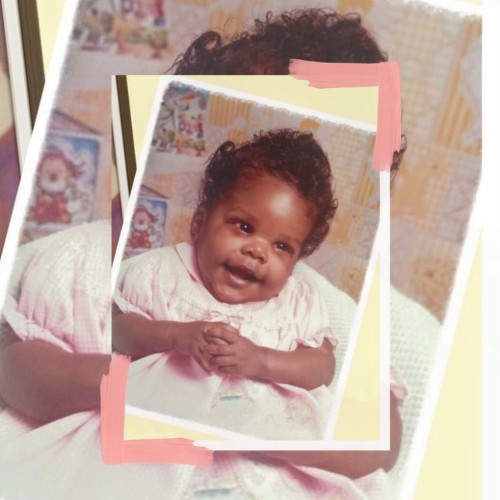
My stomach begins to churn, the natural cadence of my breathing becomes restricted, and my emotions take control; akin to the spin cycle of a washing machine, fear and anxiety well up within the soul of my inner child. It’s a familiar unsafe feeling, always lying below the surface of my authenticity, whispering to me how unworthy and unloved I am, and again fear wins, and the joy of my truth is silenced.
In the same way, I endured the stings of the infamous brown leather belt repeatedly striking my almond joy chocolate skin, robbing me of my innocence and leaving me to bear the weight and responsibility of my mother’s anger.
Her anger was an impactful manifestation of physical combustion, defending the refusal to acknowledge the piercing mental daggers of a psychological imbalance that didn’t belong to me. Most children receive warm, loving feelings of encouragement to curiously explore and create a fresh narrative via the World around them, yet the bright red blisters of pain that developed across my prepubescent body following my mother’s uncontrollable bouts of rage told a different story.
The tastebuds along my tongue learned to discern the salt of my tears. My brain whirred away, processing and making the connection; this is what pain tastes like, and love tastes like pain. The love I tasted equated to being beaten down and stripped of my joy, innocence, and curiosity; it was a prison that suffocated me, leaving me broken-spirited and depleted of what was my birthright. That little girl who became a shell of what she was born to be, grieving and disappointed, picked up her fork and ate a plate full of lies; she was forced to chew and swallow the untruths that were never hers to digest. The binding discomfort of being silenced grew roots like an oak tree keeping the secrets of generational abuse to maintain a false ideal of peace in what was initially engrained into her psyche as home.
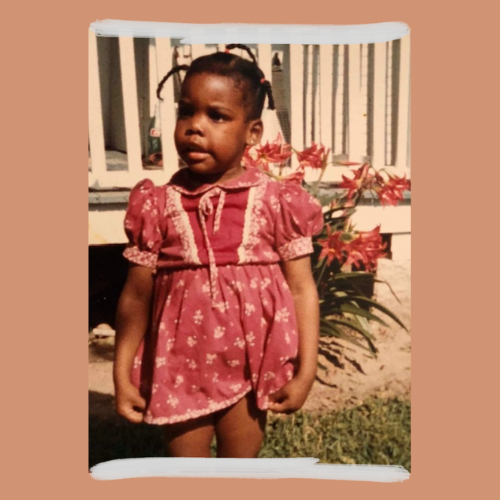 That little girl who became a shell of what she was born to be, grieving and disappointed, picked up her fork and ate a plate full of lies; she was forced to chew and swallow the untruths that were never hers to digest.
That little girl who became a shell of what she was born to be, grieving and disappointed, picked up her fork and ate a plate full of lies; she was forced to chew and swallow the untruths that were never hers to digest.I let go, pivot, and take hold of the revelation of truth. My mother’s pain and anger were never my crosses to bear; I exhale a fierce warmth that exudes the very definition of home. Home is the fiery lava that explodes from the volcano, spiritually freeing my ancestors from the heavy chains of chattel slavery that tipped the first domino leading to generations of picking up the fork to eat, chew, and swallow the untruths, disappointments, and unworthiness that burned and disfigured their flesh as they were gas lit into indisputable acceptance. I leave behind the ashes of a cycle of generational trauma and boldly and courageously step into the power that is home. Home ignites and fuels the energetic alignment of divine passion. Home is Harriet Tubman journeying the Underground Railroad, and it’s the interconnection of escaping the dark dead-end of wearing others’ shame, guilt, fear, and self-imposed limitations while boldly attaining what’s been my birthright all along. Home, it rightfully belongs to me!
I deserve what should have never been accessible and stolen by the negligence of those who were supposed to love and protect me. So I’m speaking up, speaking out, and flipping the proverbial table on the deceptions and untruths forced upon my inner child. I’m reclaiming my power, which was never anyone’s right to diminish. Home is power! The power and freedom to dive deep into the depths of the waves of my unique internal drumming. What is the cadence beneath the surface? Rhythms. Rhythms that can’t be faked or forged; they’re natural and eternal. They are home.
[image error]Home, Flowing Freely With The Cadence of Your Soul’s Internal Drumming was originally published in CRY Magazine on Medium, where people are continuing the conversation by highlighting and responding to this story.
October 22, 2022
A Morning’s Fresh
 Image by Alesha Burton
Image by Alesha BurtonAs the night sets a day, the morning starts one.
Mornings are a time of beginning, a time of arrival, a time of descent. The morning sharpness is much, much different from a night’s sharpness. A morning sharpness bites at you to wake up and chase the growing horizon. It snaps at you to enjoy the lasting darkness, glare up at the fading stars just once more before the atmosphere returns.
Mornings have an ambience unbeaten by most. They’re filled with sounds and images, each folding on one another to create the origami of the pre-sun.
The earliest sound is of a human train, with its two frontal and one back-loaded engines pulling the loads and loads of goods. The rattle of the track as the train passes on it echoes up to the sky above and bounces back to me. It captures me in a nostalgic shiver. Like coffee shop ambience playlists.
The earliest image is of the glowing sky in the distance, a blue forest fire burning on the other side of the horizon. It wakes me up and puts me to sleep all at once. The night sky with its dissipating stars wraps its arms littered with streetlights and forests clouded in a fog of pure black around me. It gives me a big hug before it leaves.
In Vampiric culture, it is said that the time between the night and the sunrise is sacred. It bred an ancestral bedtime celebration. A ritual of the sun reminding us to go to sleep. Like a human going home at sunrise after a rough night of partying. The ceremony was called “The Last Hour,” but it isn’t widely celebrated anymore.
The feeling is residual, however. A longing to go to bed and sleep through the day, then bear my fangs at night is residual. The awe of watching the transparent sky fill up and thicken with atmospheric blue is residual. The shiver of the cold air disappearing and lulling my lungs and skin is residual.
This is perhaps why I remember the feeling of walking in the mornings for years and years previous, a repeating dream, but not the feeling of walking at night all that much.
Mornings have more residue.
I’m more poetic about mornings, especially dawn, because I find it much more beautiful than the rest of the day. Artsy photos of cotton candy pink clouds and oranges as suns have nothing on feeling the world itself slowly unfolding its petals to take in the sun.
I’ve walked a lot in the morning, just before sunrise, and it feels amazing. If I could do it much more often, I would. Dawn is a lovely time to walk and enjoy the air, the ambience, the atmosphere — or perceived lack thereof. The night is beautiful in its own way but the morning? Nothing can compete.
One day my dream of walking in the morning more often will grow into reality. I will continue to watch it from the window of my house and fall asleep to the memories of rolling trains and fading stars.
— Heleza
[image error]A Morning’s Fresh was originally published in CRY Magazine on Medium, where people are continuing the conversation by highlighting and responding to this story.
October 19, 2022
Call For Submissions — What Is Home?
I’m in British Columbia this week for Vancouver Writers Festival. The first day was great and I’m looking forward to the rest of the events this week, including a workshop I’m hosting and a panel discussion I’m taking part of.
The theme of the festival this year is home. That word sparks so many things for me that I wouldn’t even know where to start. Notice that I titled this letter “What Is Home,” not “Where Is Home.” I want you to think about this question deeply. Home can mean so man things so when you submit your piece, think about what it means to you from both a literal and imaginative perspective.
Same rules as always:You can submit to this or ANY of our past writing prompts. Just scroll through our previous newsletters. They’ll be marked “Call for Submissions.”If you’re already a writer for CRY, go ahead and submit.Be as creative as you want in your submissions. As long as you stick to the topic, we’ll consider it.Just because you submit doesn’t mean we’ll post. If you haven’t heard back from us in three days, consider that a pass.[image error]Call For Submissions — What Is Home? was originally published in CRY Magazine on Medium, where people are continuing the conversation by highlighting and responding to this story.
Wearing My Mask for Protection
Protection from Covid wasn’t the only reason
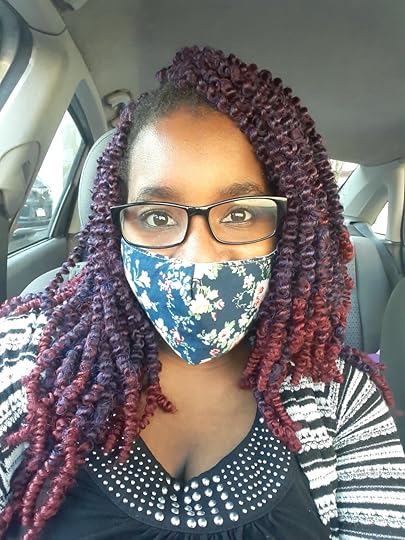
The past 2 years have been heavy for the world, no doubt. I believe these years have given people time to reflect and see what matters most in life and to be more cautious. With mask requirements for protection from a life-altering virus, wearing a mask supposedly would keep my loved ones and me safe. Along with social distancing, I noticed that a medical mask wasn’t the only mask I was using to protect myself.
I’ve been wearing this invisible mask that I crafted in my mind. This is because of the cruelty and hardships I’ve faced by stepping out into the world with high hopes of making the world a better place, selflessly helping others, and helping myself in the process with my social anxiety. I know I formed this strong mask because I’m tired of being seen as too sensitive, too small, too anxious, too vulnerable, and too much for a world that just takes advantage of good-hearted souls like me.
Worn out from helping others without looking out for me, my mask keeps me safe and feels more like a protective shell than anything. Instead of appearing warm, upbeat, kind, and friendly, I’ve become cold, serious, guarded, and withdrawn. Even my family and coworkers have noticed I’m not the person I used to be. Wearing this mask has given me a backbone and a more fiery demeanor, and if I’m being completely honest, I don’t want to go back to who I was before.
I’ve noticed the people around me becoming more shallow, more ruthless, and caring less about others’ well-being. I always told myself I wouldn’t let others destroy me and that my mask might just be my saving grace. I’ve formed boundaries and cut those who crossed them. I let people know how I feel and remained firm. I let others know I’m not one for pointless drama and gossip because I have other issues to focus on.
I’m tired of being looked down upon, not because I’m only 4'11, but because I tried to have a positive outlook on life. Tried, and failed. Tried to be everyone’s heroine at what expense? My mental and emotional health took a huge toll and it’s time I focus on myself, my spouse, and my daughters. A lot has gone on in the past year and I took a hiatus from writing and social media. My husband almost died due to breathing issues, and I constantly had to plead with doctors to look deeper into it for months. I believe that was my turning point to create and put on my strong mask; to be a pillar of strength and endurance when the world and circumstances could’ve ended everything. I put on this mask to advocate not only for my loved ones but for myself as well.
I’m trying to show my daughters what a strong woman looks like out in a world that’s meant to shatter her, and the only time where I don’t have to suit up with a hard-shelled mask all of the time is when I’m around them. My nurturing, loving, and playful side is never something I want to keep away from my spouse and daughters because life is too short to constantly have your guard up for the people who will truly love you, understand you and accept you for who you are. As for the rest of the world, the mask is here to stay.
[image error]Wearing My Mask for Protection was originally published in CRY Magazine on Medium, where people are continuing the conversation by highlighting and responding to this story.

